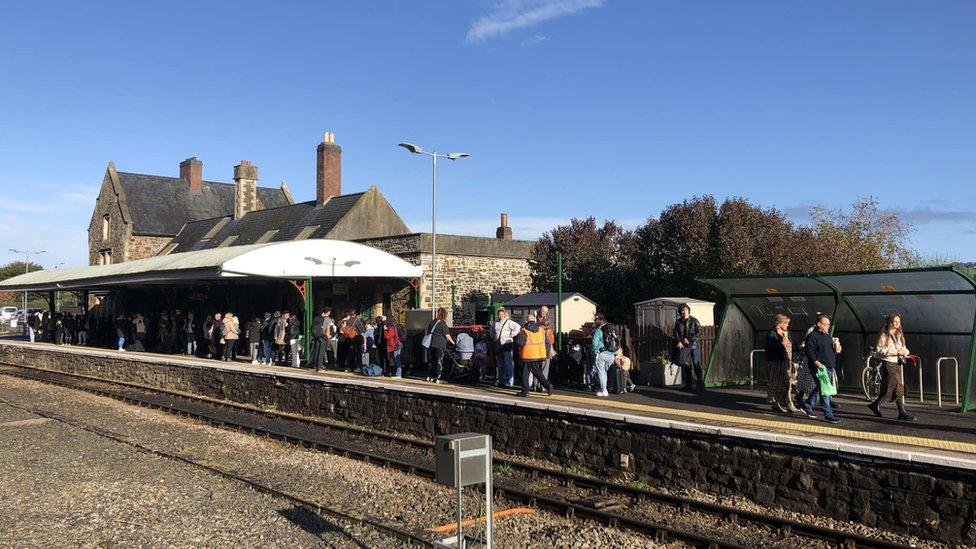Devon's Tarka rail line breaks passenger records
- Published

The hourly service to and from Barnstaple is reaching passenger capacity
The Tarka rail line has broken all of its passenger records by seeing more than 800,000 journeys in one year.
The North Devon train line, operated by Great Western Railway (GWR), goes from Exeter to Barnstaple.
However, the Tarka Rail Association (TRA) said the hourly service was now reaching passenger capacity and had become "a victim of its own success".
GWR said it would continue to look at short-term solutions while lobbying for longer-term improvements.
'Highest passenger growth'
The TRA, set up in 1977, is one of the oldest rail user groups in the UK.
It was originally formed to save the line from being another victim of railway closures, but said it was now facing the new challenge of coping with the sheer number of passengers.
Tim Steer, joint vice-chair of the association, said the line was reaching capacity on key college and leisure services.
Most recent official figures on the line for 2022/23 showed 844,000 journeys had been made.
Mr Steer said the record-breaking figures meant the line was showing the highest percentage in passenger growth in south-west England.
Campaigning for modernisation
However, Mr Steer said the trains were not big enough or regular enough to cope.
He said: "At peak times, we are seeing three-carriage GWR trains leaving Barnstaple full and standing, and this is making challenges for communities along the line who are finding there is no capacity for them to get on board."
The TRA said it was campaigning for modernisation to the existing infrastructure, for more carriages to be added to the trains, to have two services per hour and for the trains to be faster.
A spokesperson for GWR said: "We share the Tarka Line Association's aspiration for improvement, and are only too aware of the challenges faced on the busiest trains on the line.
"Unfortunately, we cannot run more trains without significant and costly improvements to the infrastructure; and we cannot run longer trains without either extensive modifications to platform lengths, or to the trains themselves."

Follow BBC Devon on X (formerly Twitter), external, Facebook, external and Instagram, external. Send your story ideas to spotlight@bbc.co.uk, external.